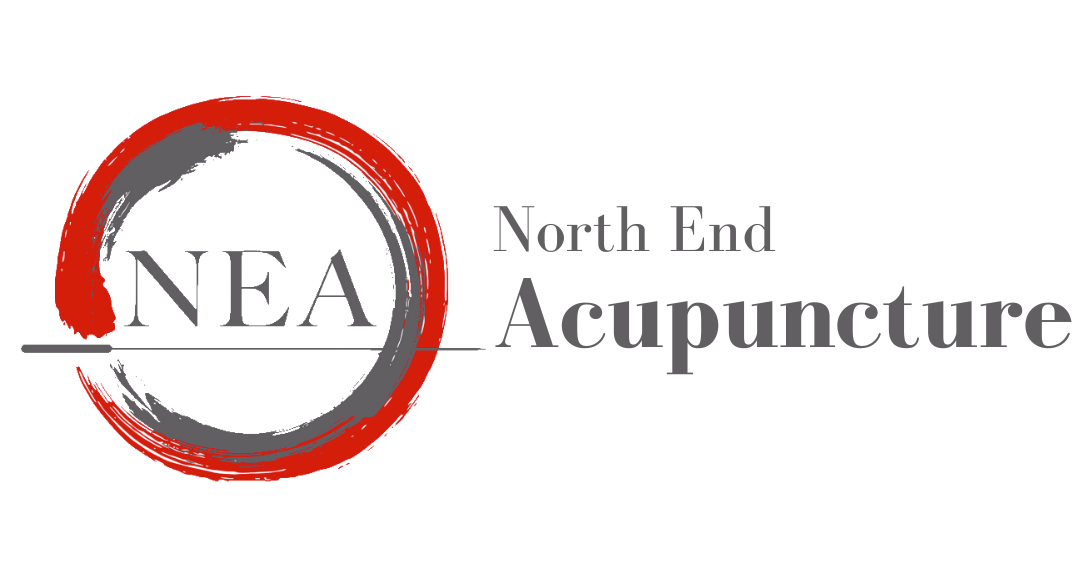We Can Help
Acupuncture and herbal medicine are components of Chinese medicine- a complete medical system that has been in practice for thousands of years, successfully treating a multitude of health concerns and illnesses. At North End Acupuncture, our talented team of practitioners have extensive experience treating a wide variety of complex health conditions, and are eager to assist our patients in improving their health and vitality.
The following is a list of common conditions that we treat regularly, however this list is not exhaustive. If you do not see your health concern listed, please contact the office for a consultation to see how Chinese medicine may address your individual health needs.

Upper GI Disorders
Acid Reflux
Gallstones
Gas/Indigestion
Gastritis
Gastroparesis
GERD
Morning Sickness
Nausea
Peptic/Gastric Ulcer
Lower GI Disorders
Chron’s Disease
Constipation
Diarrhea
Diverticulitis/Diverticulosis
Gas/Indigestion
Hemorrhoids
IBS
Leaky Gut Syndrome (see below)
Ulcerative Colitis
Women’s Health – OB/GYN
Amenorrhea
Dysmenorrhea
Endometriosis
Female Infertility
Fibroids
Menopause
Menorrhagia (heavy periods)
Metrorrhagia (irregular periods)
Polycystic Ovary Syndrome (PCOS)
Post-Pregnancy Recovery
Premenstrual Syndrome
Men’s Health
Benign Prostatic Hyperplasia (BPH)
Erectile Dysfunction
Low Libido
Male Infertility
-
Low Sperm Count
-
Low Sperm Motility
-
Poor Morphology
Premature Ejaculation
Prostatitis
Spermatorrhea
Genito-Urinary
Cystitis
Kidney Stones
Incontinence
Nocturia
Urinary Dribbling
Urinary Frequency
Urinary Tract Infection
Urinary Urgency
Upper/Lower Respiratory
Allergies
Asthma
Bronchitis
Common Cold
Cystic Fibrosis
Pneumonia
Rhinitis
Sinusitis
Sleep Apnea
Tonsillitis
Neurological Disorders
Bell’s Palsy
Cognitive Function Deficiencies
Headaches/Migraines
Meniere’s Disease
Motor Function Deficiencies
Multiple Sclerosis
Peripheral Neuropathy
Shingles
Stroke Recovery
Tinnitus
Vertigo
Musculo-Skeletal
Acute/Chronic Pain
Back Pain
Carpal Tunnel Syndrome
Frozen Shoulder
Jaw Pain/TMJ
Knee Pain
Neck Pain
Osteoarthritis
Plantar Fasciitis
Rheumatoid Arthritis
Sciatica
Spinal Stenosis
Sport Injuries
Surgery Recovery
Leaky Gut Syndrome
“All Disease Begins in the Gut” – Hippocrates
Leaky Gut Syndrome (LGS)
Leaky Gut Syndrome (LGS) is a rapidly growing condition that has become a major health concern in our modern society. Leaky Gut sounds like a condition that may only affect the digestive system, but in reality, it is a disorder that can and does have profound systemic effects, resulting in countless health complaints. In fact, around 50% of Philip’s patients dealing with chronic health issues have Leaky Gut confirmed through laboratory testing.
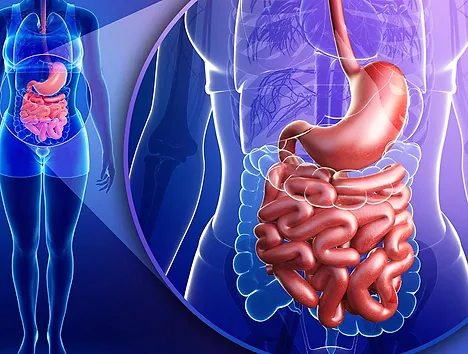
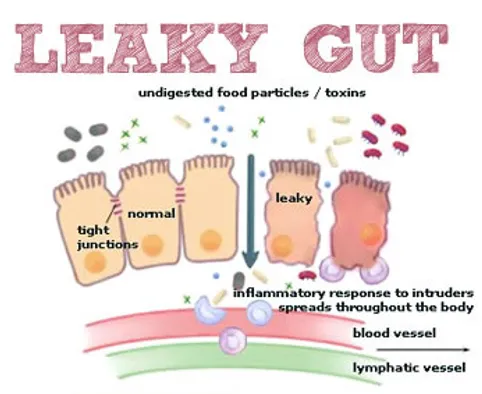
What is Leaky Gut Syndrome?
Leaky Gut Syndrome is a term used to describe a host of disorders that stem from a small intestine that has become overly porous. To understand the pathology and treatment of Leaky Gut, it is important to first have a basic understanding of the anatomy and physiology of the disorder from a western medical perspective.
The small intestine is the area of the digestive system where nutrients are absorbed after they have been sufficiently broken down in the stomach. The epithelium, or inner layer of the small intestine, has tightly packed cells creating tiny cell junctions. This allows for a selectively permeable barrier designed to permit only specific nutrients to cross and enter into the bloodstream.
In Leaky Gut Syndrome, the epithelium of the small intestine becomes inflamed and irritated allowing bacteria, fungi/yeasts, metabolic waste, microbial toxins, undigested food, hormones, etc. to seep into circulation creating a cascade of systemic damage to the body.
What is Leaky Gut Syndrome?
Leaky Gut Syndrome is a term used to describe a host of disorders that stem from a small intestine that has become overly porous. To understand the pathology and treatment of Leaky Gut, it is important to first have a basic understanding of the anatomy and physiology of the disorder from a western medical perspective.
The small intestine is the area of the digestive system where nutrients are absorbed after they have been sufficiently broken down in the stomach. The epithelium, or inner layer of the small intestine, has tightly packed cells creating tiny cell junctions. This allows for a selectively permeable barrier designed to permit only specific nutrients to cross and enter into the bloodstream.
In Leaky Gut Syndrome, the epithelium of the small intestine becomes inflamed and irritated allowing bacteria, fungi/yeasts, metabolic waste, microbial toxins, undigested food, hormones, etc. to seep into circulation creating a cascade of systemic damage to the body.

What Causes Leaky Gut?
Leaky Gut is initiated primarily through the use of certain medications, namely antibiotics. Significant secondary causes are non-steroidal anti-inflammatories (NSAIDs), immunizations, environmental toxins, food additives, alcohol and candida, with diet and lifestyle playing a strong role as well.
There are trillions more bacteria than native human cells living in and on your body; a ratio of about 10:1. These bacteria create a delicate ecosystem allowing countless symbiotic relationships within every system in your body. Antibiotics directly disrupt this ecosystem, creating countless undesired effects.
Initially, while destroying pathogenic bacteria, antibiotics also destroy beneficial bacteria. This leads to alkalization of the digestive tract and dysbiosis- an imbalance of the indigenous microflora in the body. Beneficial bacteria are absolutely essential to our health and survival.
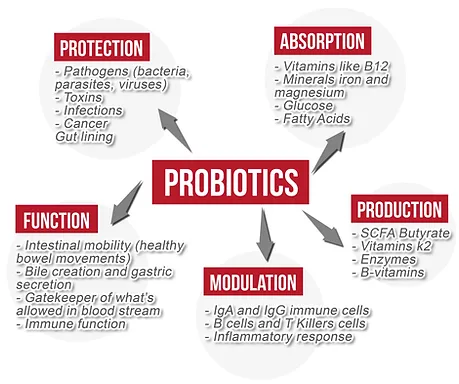
They carry out countless functions that maintain a healthy metabolism and immune response such as- destroying pathogenic microbes (bad bacteria) and preventing colonization of parasites, synthesizing vitamins, digesting food and facilitating digestion, stimulating antibody and lymphocyte formation, and secreting enzymes to help transform and neutralize microbial and metabolic wastes before they are excreted from the body.
Pathogenic and opportunistic bacteria on the other hand, can have a nearly limitless negative impact on the body- deactivating digestive enzymes like trypsin and chymotrypsin, consuming B12, producing ammonia and increasing digestive tract pH which promotes fungal growth, preventing breakdown of bile acids and estrogens, activating carcinogens, creating antibody-antigen complexes leading to autoimmune diseases, etc.
Not only do antibiotics let pathogenic and opportunistic pathogens gain a hold by eliminating their beneficial competitors, but they also promote the growth of Candida Albicans and other pathogenic fungi/yeasts. Candida secretes a particular chemical which shrinks the epithelial cells of the small intestine. This increases the space between the normally tight cell gap junctions leading to a porous gut.

While antibiotics and medications often cause LGS, it is important to note here the contributing factor of food allergies and intolerances in perpetuating an inflamed digestive tract. There is a vicious cycle put into place when food particles that have not yet been sufficiently broken down are absorbed and allowed to enter the bloodstream. Food particles this large are not recognized by the immune system and are therefore viewed as antigens by the body. Antibodies are created to tag these particles as foreign irritants so that the immune system can reliably recognize them. Going forward, any time the small intestine epithelia comes into contact with that food, an inflammatory response will be mounted by the immune system, creating irritation and further damage.
Over time, this drains the immune system as well as the adrenal reserves, which help drive metabolism, blood pressure, inflammatory reactions and the body’s ability to cope with stress. Many patients with LGS present in clinic with food sensitivities, often ones that they were completely unaware of. Intolerances can be innate, but a large portion of associated allergies tend to be acquired and a result of LGS itself.
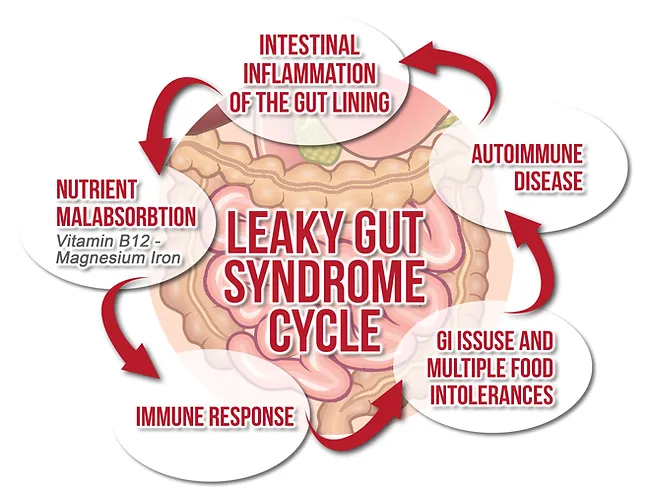
What Conditions Can Directly Result from Leaky Gut?
Gastrointestinal Disorders
Celiac disease
Chronic diarrhea
Constipation
Diverticulitis
Hemorrhoids
Irritable Bowel Syndrome (IBS)
Malabsorption issues
SIBO
Gastritis
Hepatic dysfunction
Pernicious Anemia
Allergy Syndrome
Food allergies
Sinus allergies
Asthma
Urticaria
Chemical sensitivities
Skin Conditions
Psoriasis
Eczema (almost always LGS)
Fungal infections
Acne
Neurotransmitter Disorders
ADD/ADHD
Depression
Anxiety
Insomnia
Memory disorders
Pain Disorders
Fibromyalgia
Joint pains
Arthritis
Headache/Migraine
Hormone Disorders
Adrenal fatigue
Menstrual disorders
Osteoporosis
PMS
Uterine fibroids
Breast fibroids
Thyroid disorders (Hashimoto’s, Hypothyroidism, Grave’s)
Autoimmune Disorders
Ankylosing spondylitis
Rheumatoid arthritis
Crohn’s disease
Ulcerative Colitis
Immune Disorders
Recurrent infections (ear/sinus, etc)
Chronic Fatigue Syndrome
Chronic yeast infections
Pediatric Disorders
Immune deficiency
Allergies
Hyperactivity disorders (ADD/ADHD)
How is Leaky Gut Treated?
Few western physicians acknowledge the presence of Leaky Gut, let alone the significant contribution medications have to the disorder. This leads to few conventional options to address the disorder.
At North End Acupuncture, we are one of only a handful of Chinese medicine clinics in the country that uses a functional medicine model to help accurately diagnose and treat Leaky Gut. With each patient, he will conduct a complete medical history which examines the main and secondary complaints while investigating all other systems of the body to gain fuller view of a patient’s pathology. If LGS is suspected, specific laboratory testing is often used to confirm a diagnosis.

We use exclusively acupuncture and Chinese herbal medicine with some western nutritional supplementation to treat Leaky Gut, and treat using the wisdom of Chinese medical theory. This unique treatment approach is not only effective, but essential. There is no such thing as a universal treatment for LGS. It is an extremely complex and nuanced disorder that manifests with infinite diversity, depending on a patient’s constitutional weaknesses and unique real life exposures. Treatment requires an individual diagnosis paired with medicine strong enough to address the complaints, yet gentle enough not to further weaken the body. Emphasis is placed on alleviating a patient’s symptoms quickly, but more importantly, resolving the root issue holding a disease pattern in place.
Initial treatment is organized by removing the ongoing irritants to the small intestine epithelium. This is done by eliminating the intake of antibiotics, NSAID’s and food irritants while eradicating overgrowth of pathogenic bacteria and yeasts. Second, the intestinal lining is repaired using specific nutrients and herbal therapy. Third, the liver and lymphatics are detoxified and regulated, as both systems become sluggish after being overloaded by LGS byproducts. Next, the immune system and endocrine systems are supported and balanced as LGS keeps them in a state of constant activation. Finally, the digestive system needs to be regulated and rehabilitated, as it is almost always weak after prolonged Leaky Gut.
Healing begins here
Whether you’re seeking pain relief, stress management, or overall wellness, we’re here to support you on your journey to better health through acupuncture.
Contact us to learn more about our services or book an appointment today!

